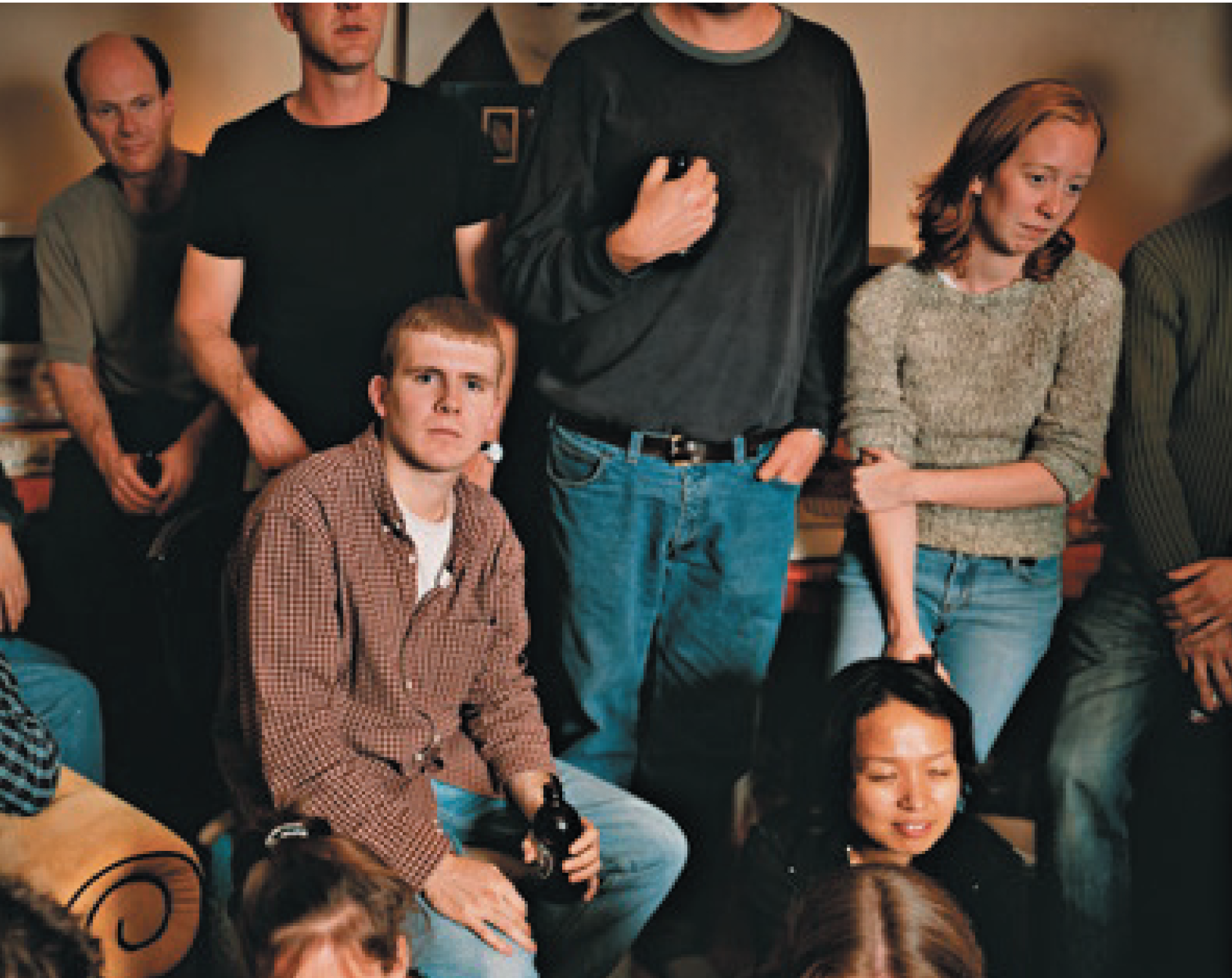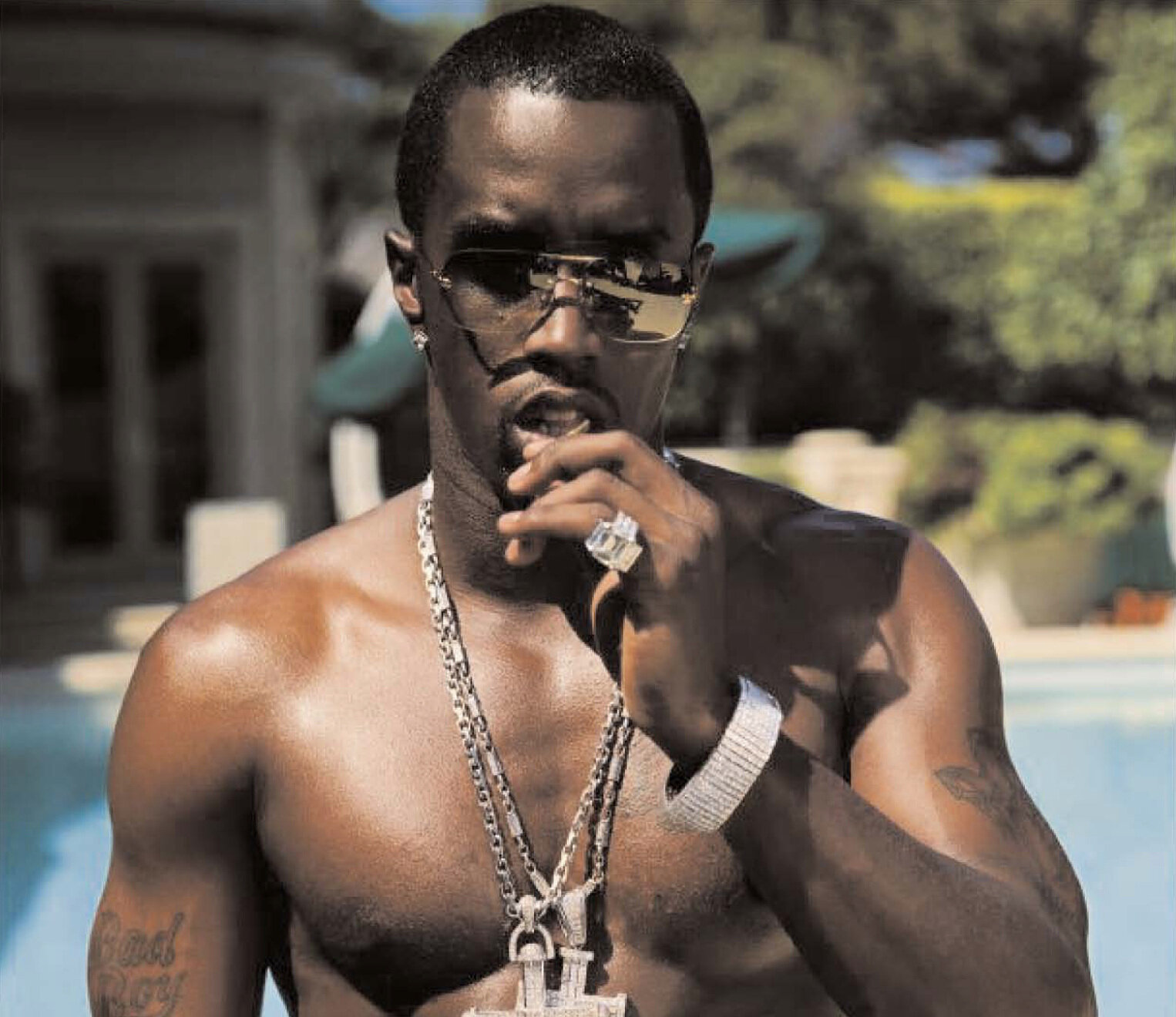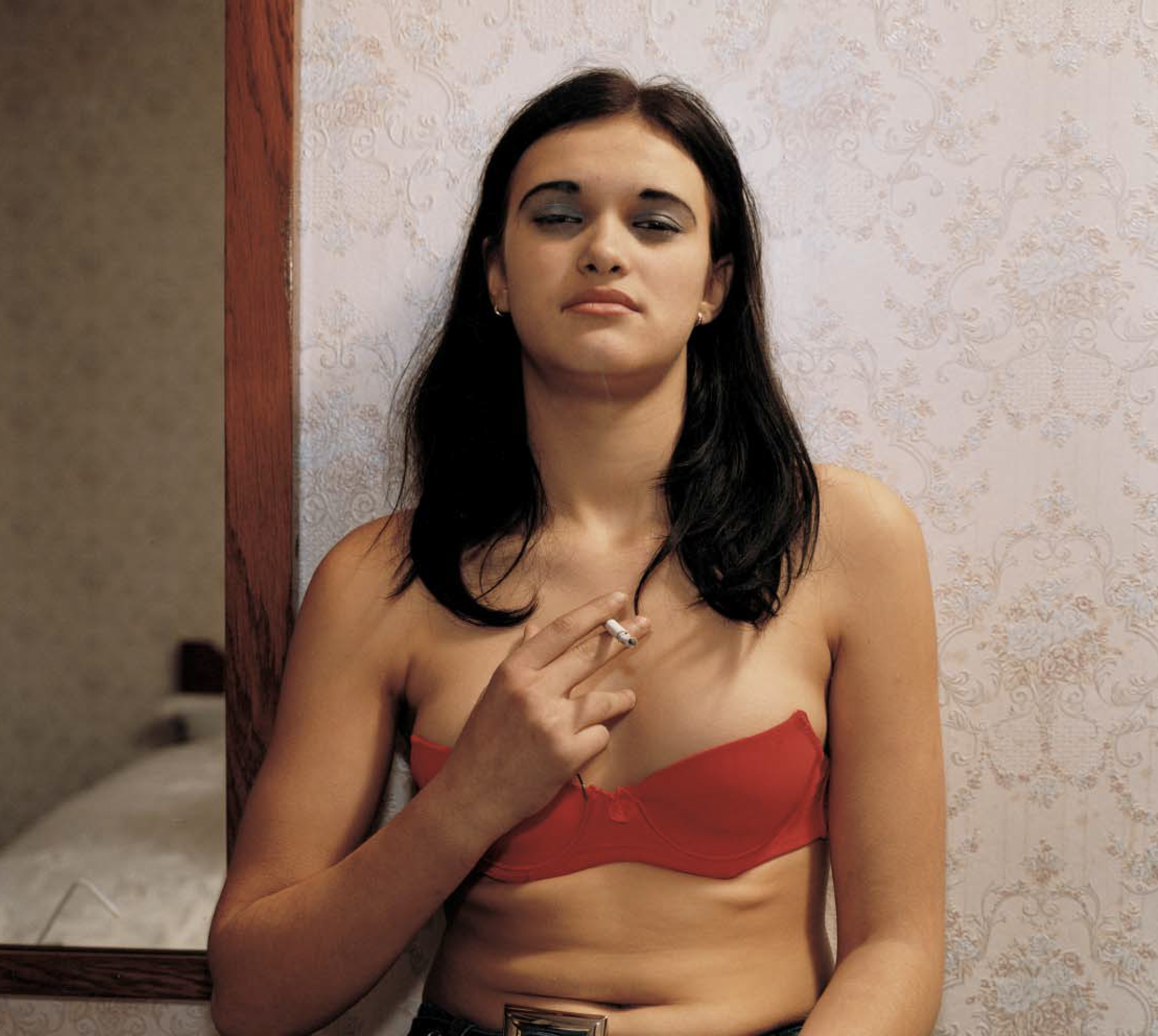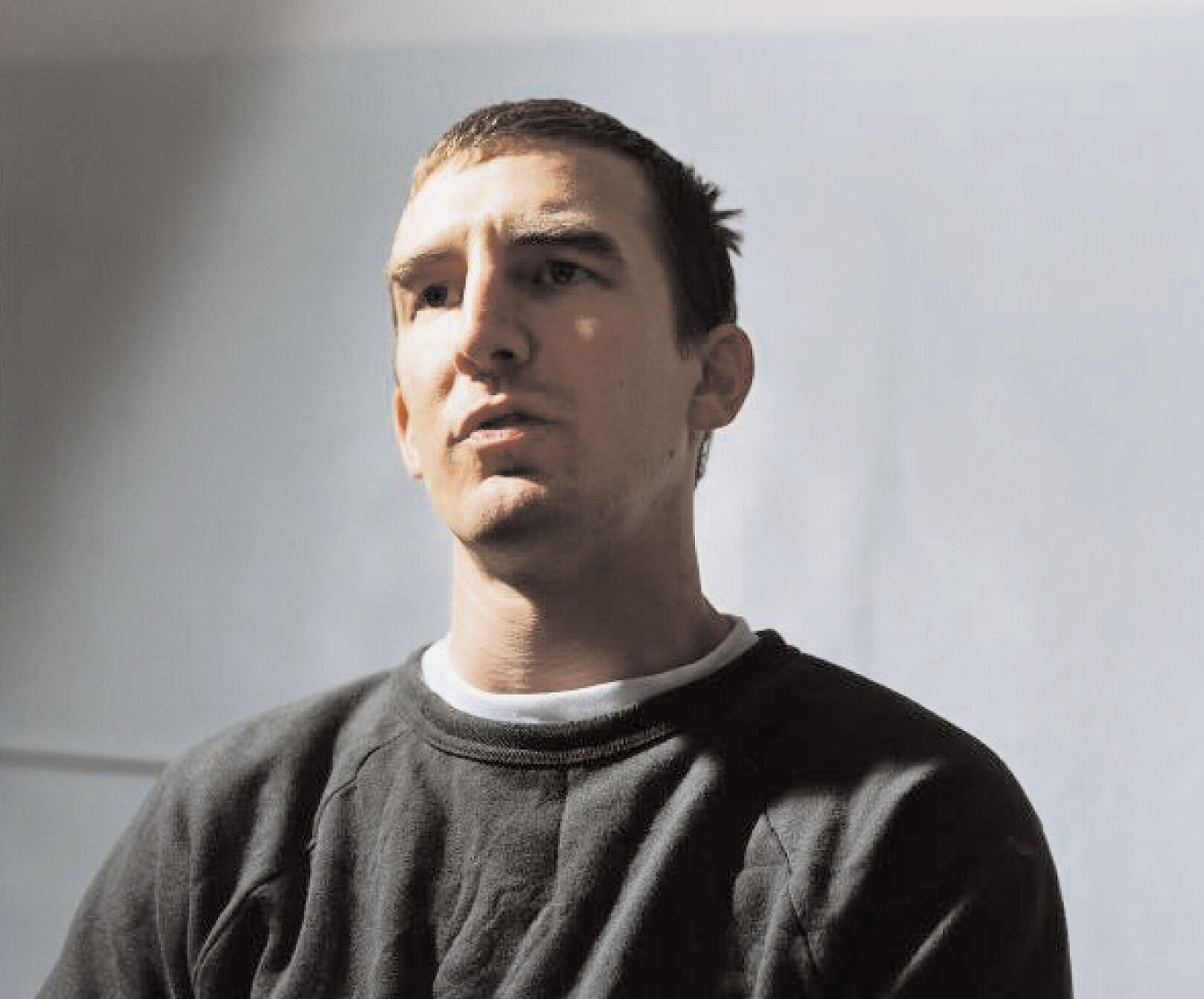How Damon Dash Made Corporate American His Bitch

DETAILS MAGAZINE
FEBRUARY 2005
Photo by Chris McPherson
For the record-label founder, movie producer and director, magazine publisher, and vodka maker, life is one long cross-promotion.
DAMON DASH IS BRANDISHING AN ICY BOTTLE OF ARMANDALE vodka, his vodka, the one he makes, markets, and now wants me to chug. He plants a meaty hand on my shoulder because I’m trying to get away. It’s 10 P.M. on a chilly Sunday, somewhere in the McMansion suburbs north of Philly. Dash’s voice, big and friendly, echoes off the Italian marble of this mansion’s entryway, with its bronzetinted mirrors and mall-bright chandelier.
“This is a historic moment you witnessin’,” says Dash, weaving around the room in blue sweats and an immaculate white tee. “Like, you can always say you was with Beanie the night before he did his bid in jail. He is probably one of the greatest rappers. He got a clothing line, a sneaker line, he starred in two movies, he got a record label. He embodies everything Roc-A-Fella means.”
Dash is the 33-year-old CEO of Roc-A-Fella Records, the hip-hop label he started nine years ago with his front man and multiplatinum star, Jay-Z, and Kareem “Biggs” Burke. But since Dash and Jay-Z parted ways last summer, amid tabloid rumors of bad blood, Dash has been working overtime to re-assert his dominance. As head of a $500 million empire that began with music and now takes in clothes, shoes, a magazine, liquor, watches, and films, Dash is promoting the hell out of anything he owns with renewed intensity.
Right now, what he’s promoting is the imminent incarceration of one of his stars, Beanie Sigel. Tomorrow morning, Sigel is headed to jail for about six months on a gun-possession charge. After recording a final few tracks for a CD in his home recording studio, Sigel is holed up in his bedroom upstairs, seeking sanctuary from the grim going-to-jail party taking place in his house.
Dash’s personal cameraman, waiting at the bottom of the stairs, has filmed every moment of Sigel’s legal and personal ordeal for a behind-the-scenes documentary to air on BET. Dash also directed Sigel in a gangsta film called State Property II and is furiously pushing to schedule its premiere to coincide with Sigel’s expected release from jail this spring.
“Wassup, my nigga?” Dash screams, letting go of my shoulder and bear-hugging one of the two dozen people milling around the house. “We goin’ hard tonight!”
It’s difficult to picture Dash going any way but hard. In fact, over the past 72 hours, as I’ve trailed him from New York to Los Angeles to Philly on a late-November weekend, I’ve seen him berate Hollywood executives, trade shots of Armandale with Kevin Bacon (whose film The Woodsman he produced), and hold grueling marketing meetings with his bleary-eyed staff aboard a chartered Gulfstream jet. While Sean Combs morphs into the hip-hop Liberace and Russell Simmons, preaching drug-law reform, wants to be Jesse Jackson, Dash remains single-minded about chasing the money.
In the past two years, he has turned his business into one of the most far-flung and wildly diversified in hip hop, buying or licensing half a dozen companies. His Armandale vodka grossed $2 million last year. He started publishing a magazine named America. He recently paid an estimated $5 million for the license for Pro-Keds. His Rocawear urban clothing line is a $350 million–a–year cash cow, and he will soon branch into designer suits. He is even considering his own debit card.
“People I work with gotta think like I think: Gotta make money,” says Dash. “My biggest problem with people is they don’t see the big picture. They always want to go for the sure thing. The sure thing ain’t usually profitable.”
WHEN I FIRST MEET DASH, HE IS NAKED FROM THE waist up, lounging in the Moroccan-themed living
room of his Beverly Hills mansion. It is 11 A.M. on Friday. He is in the midst of his biggest—and riskiest— career push yet: trying to become a Hollywood mogul. The house is buzzing with assistants, white kids in their twenties armed with BlackBerries and cell phones to keep Dash updated on his schedule.
Though he has already produced eight films (The Woodsman won the top award at the London Film Festival), he has a fight on his hands later today with Lions Gate Films, which will release State Property II. They want it to go straight to DVD, for fast money. Dash is having none of it.
“I’m not the kind of guy to ask, you know what I’m sayin’?” says Dash, leveling me with a streetfighter stare as he leans back on his plush sofa, his thick arms a nest of tattoos. “I tell people what’s up. There’s not a lot of people I respect, because people play games. We should agree. Or else I’m walking.”
The movie, in which Sigel plays an imprisoned Philly drug lord struggling to keep his gang alive, provides a model of Dash’s marketing synergy. It has spawned a State Property clothing line and a soundtrack featuring Roc-A-Fella rappers. (It also features Dash, playing a Harlem-born hustler forced into the turf war.)
To skeptics, Dash’s sprawling business empire can look haphazard—and unsound. But to Dash, such broad diversification will lead to simple cross-pollination, and vindication. “How many times you hear I’m gonna do this or I’m gonna do that, and you don’t see shit?” Dash asks. We’re cruising along Sunset to his first meeting of the day, a cloud of sweet pot smoke enveloping the back seats of his customized van as the song “Lean on Me” plays. (Dash’s traveling soundtrack is mostly frat-boy rock: Dave Matthews, Hendrix, Zeppelin, the Beatles.) “I said from the start I’m gonna do this, and I did it. I make the best liquor, trust me. I do the best music, trust me. My magazine is the best, trust me on that. And the movies I make will be the best too.”
Dash’s boldest claims, I soon learn, are always backed up—not just by his brash will but also by his raw instinct for marketing. Soon we arrive at a palm-shaded outdoor restaurant, where he persuades a group of film-distribution execs to release his 2003 movie Death of a Dynasty in the United States even though it’s already out on DVD in London. Dash promises that his “various outlets and tiers of distribution,” from vodka to rap videos to his new MP3 player, the Rocbox, will be used to promote the 2003 mockumentary, which humorously prefigures his split with Jay-Z.
He claims that all the stories of him fighting with Jay are false, but he is willing to milk the controversy as long as it lasts. “They gonna go nuts over this movie, ’cause it looks like we really going at it. I am here to sell. That’s what I do. That’s what I always do.”
BACK IN THE VAN, KAREEM “BIGGS” BURKE, A BIG guy with a broad laugh, is choosing among three baggies of pot, one of which he and Dash call Herojuana (“’cause it hits you like heroin”). Dash eventually taunts me into partaking. On the way, Dash tells me that he and Jay-Z are still close, that the rapper simply left Roc-A-Fella to pursue a business career. But press reports have alleged that Jay-Z wanted out of the partnership because he felt Dash was obsessed with becoming a star—overshadowing his label’s own artists—and because Dash was aggressively pushing the company into the film industry, a strategy Jay-Z rejected. Two weeks after Dash’s Hollywood trip, Dash, Jay-Z, and Biggs sold their half of the company for a reported $10 million to Universal’s Island Def Jam label, which already owned the other half. (Dash, who is rumored to be worth $100 million, notes that the money will be split three ways and there won’t be much left after taxes. “Chump change,” he grumbles.) The same day, Jay-Z, who claimed he was going to retire from his rapping career, was named president and CEO of Def Jam, leaving Dash the task of defining his new role in the music world without his biggest star.
“Jay is an intelligent individual that needs to show he can be the one to do the business part as opposed to the creative part,” Dash says diplomatically. (Jay-Z would not comment for this story, nor has he spoken publicly about the split.) “Roc-AFella is a chapter in his life that got him where he’s at. Now he’s moving on.”
AT LIONS GATE, WE ALL TUMBLE FROM THE VAN. In a glass-walled meeting room, across from a cardboard promotion for the animated film Popeye’s Voyage: The Quest for Pappy, Dash is greeted by John Hegeman, Lions Gate’s president of worldwide marketing. An athletic man with graying temples and a rich blue shirt, he pitches the direct-to-DVD release. Dash quickly shuts him down, calling the idea “a waste of my time,” saying it does nothing “for the perception of my brand,” and refusing to be “exploited.” He launches into a barbed diatribe, cutting Hegeman off at every turn. The exec grows redder in the face by the minute.
“I wouldn’t have sat outside for 20 hours a day, take my meetings at two in the fucking morning, not see my kids for three fucking weeks, to go DVD so y’all can make money,” Dash growls. “I wouldn’t have gave you that movie.” Then he adds, “Beans is going to jail. We got to capitalize on that.”
When Beth Melillo, the raven-haired senior vice president of Dash Films, asks about getting the movie screened at Sundance, Hegeman balks, saying he doesn’t think a violent urban-gangster flick will get into the artsy film festival.
“She just asking if we can get in,” Dash says, now standing up over him. “You say nine out of ten times you don’t get in. I’m like, ‘Dude, I ain’t nine out of ten, I’m Dame Dash.’ The question is, are you guys down with it?”
Dash’s personal assistant—one of his jobs is toting Dash’s magazines, vodka samples, CDs, MP3 player, and other assorted props—starts snickering. Hegeman explains that the $250,000 cost of submitting the film and promoting it at Sundance wouldn’t be worth it, which makes Dash, a stickler for having his questions answered forthrightly, go after him harder. “When we ask you a question, just answer the question,” he says. Soon it’s all schoolyard chaos.
“You don’t have to bullshit us,” Dash says.
“I’m not bullshitting anyone!” Hegeman counters, slamming a hand on the table. Dash’s team
snickers again. “I’m trying to make this work.”
“So then answer the question!” Dash says.
“You know what, I’m not on trial,” Hegeman says. “You gotta stop.”
“You gotta stop,” Dash says.
Melillo and Anne Parducci, another Lions Gate executive who has been watching all this impatiently, finally calm the two men down. The meeting ends with Hegeman promising to press his bosses for a theatrical release. (They ultimately agreed.)
Back outside, Dash’s group cracks up. “You see that dude hit the table?” Biggs says, pushing us all into fits of laughter.
“He like, Slam!” Dash says, letting out a howl. That night, Dash presides over the premiere of The Woodsman and then over a packed party at his mansion. While Kevin Bacon jokes with Dash about a possible reality series based on Dash’s life, the impresario keeps refilling their glasses with Armandale. At the crowded backyard patio bar I bump into Steve Beer, a theatrical attorney and coproducer of Death of a Dynasty. I tell him about the meeting and ask whether Dash went overboard.
“Damon is a smart guy and he’s right about this,” says Beer. “Going to DVD dilutes his brand. It looks bad. And these guys simply don’t want to make the big bet Damon wants them to make. But they need him, too, to get behind the movie and promote it. So in a way, they’re stuck with each other.”
IN PRESS PHOTOS, DASH ALWAYS LOOKS LIKE the surly ghetto thug, a dead, come-and-get-me stare in his eye, a firm-set jaw. And he certainly has a demanding work ethic. But he is also playful, mischievous, and, with his staffers, brotherly and affectionate. On Sunday, during the six-hour plane ride from L.A. to Philly, he frantically hops from one plush seat to the next, holding a marketing meeting, reading about J. Lo and Ben in US Weekly, and teasing his female staffers about their boyfriends, pulling their hair, howling.
Even his enthusiasm for the promo op of Sigel’s incarceration—he has asked his cameraman to film Sigel walking into the jail the next morning— is tempered by his familial concern for the man. When he arrives at Sigel’s house, he spends as much time hugging Sigel’s mother and other family members as he does trying to get me to stick around for the all-night party to follow.
But after hanging with Dash since Friday, I’m exhausted—not just by the vodka he keeps offering me but by the vast wattage of his personality and by his unstoppable friendliness.
“Come on,” he says, pulling me along, “we goin’ upstairs.”
Sigel sits on the bed hugging his young daughter. Dash, not in the least concerned about barging in, drags me into the bedroom to toast Sigel’s impending departure with a few more shots of Armandale. Sigel is big, 300-plus pounds, and utterly gracious as he shakes my hand and drinks up.
Back downstairs, as I get ready to leave, Dash offers some well-spun parting words. “See? Wouldn’t you want to be there the night before Capone went to jail, before Ali beat Frazier in Manila?” he asks, not wanting me to miss the importance of the moment, even as I’m walking away.
“I want you to remember this. No, no. I want you to tell everyone about this.”




